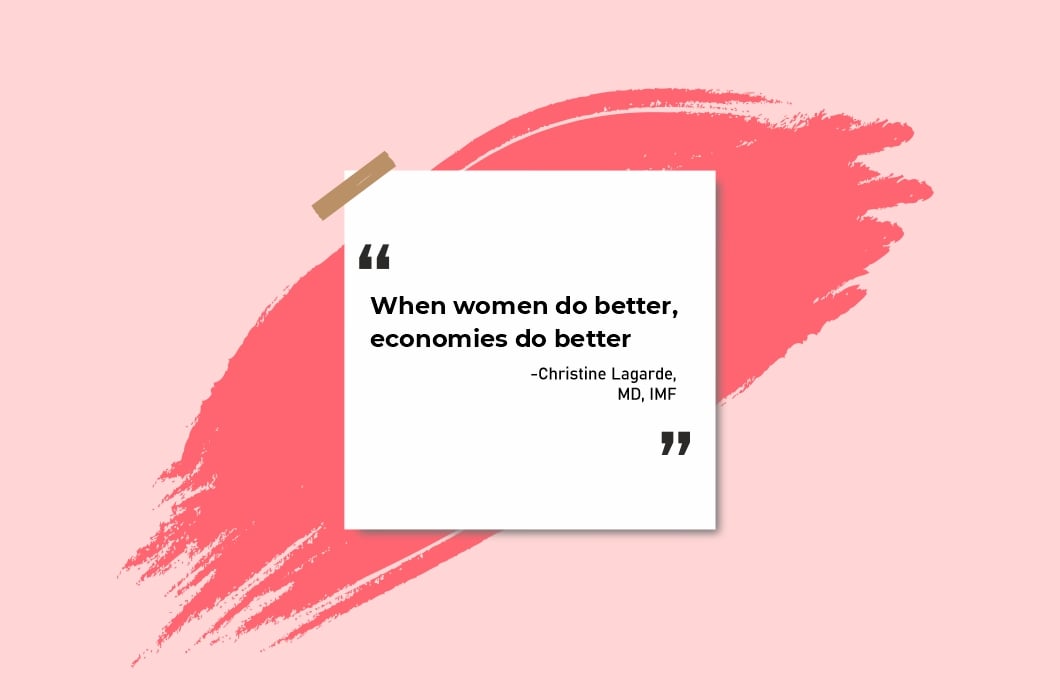Women are now a part of the workforce. The #MeToo campaign started in 2017 brought out the various atrocities committed against women in the workspace. There is still abundant room for progress in realizing women’s access to basic human rights such as education, safe and secure employment, and to own property among others. These aspects require supportive policies by governments. More efforts are needed to ensure that gender-sensitive policies are implemented effectively to bring a positive change in women’s lives.
Women Entrepreneurs

There is enough evidence to suggest that opportunity and access to knowledge & resources can make all the difference. In rural India, women entrepreneurs have generated their own path rising as leaders across various portfolios. They have proved to be capable mentors for future generations. Despite the socio-economic hierarchy and the tremendous psychological and societal pressure, women have paved their way to financial independence. They built their businesses from scratch and inspired those around them to challenge the status quo. However, the pandemic led to the downfall of health and income. Women entrepreneurs, who had fought tooth and nail to begin their own business, were suddenly looking at long-term losses and possible closure. Their financial independence was threatened. Their caregiving and domestic duties increased, taking away attention from their careers. They did not have the resources to move their businesses onto virtual platforms and the mental pressure caused by the pandemic was incomparable. Many women did not have any support to voice their concerns and fears. There is an urgent need to ensure significant interventions to provide easier access to finance from banks as well as tax incentives. Valuing girls and women is a critical factor in making societies more prosperous. Women’s economic empowerment is highly connected with poverty reduction as women also tend to invest more of their earnings in their children and communities.
Indian women do not enjoy the same rights and privileges as men. Strong preference for the male child has always disrupted the country’s gender ratio and squeezed resources available for the girl child. 97% of all female workers in India are active in the informal sector, engaged in low-paying activities and domestic work. Improving the quality of work and its payment and enhancing the well-being of such women is an urgent priority. Women must be given equal opportunities so that we can speed up growth and progress by working together.
India will benefit more from women's economic contribution than any other nation in the world. The Indian government has recognized the potential of women and has drafted some policies. To improve employability a separate Ministry of Skill Development and Entrepreneurship was created.

Following are some of the rights women need to be aware of:
- The Equal Remuneration Act, 1973 provides for payment of equal remuneration to men and women workers for the same work of similar nature without any discrimination.
- The Maternity Benefit Act, 1961 regulates the employment of women in certain establishments for a certain period before and after childbirth and provides for maternity and other benefits. In March 2017, India legislated a federal law demanding that all employers offer twenty-six weeks of paid maternity leave.
- The Indira Gandhi Matritva Sahyog Yojana (IGMSY) Scheme, a Conditional Maternity Benefit for pregnant and lactating mothers to improve health and nutrition status by providing cash incentives and partly compensating wage loss both before and after delivery is implemented.
- The Sexual Harassment of Women at Workplace (Prevention, Prohibition and Redressal) Act, 2013 covers all women, irrespective of their age or employment status, and protects them against sexual harassment at all workplaces both in the public and private sector, whether organized or unorganized.
Employing women is a low-risk and high-return formula.

